Wildlife Management
Our team carefully manage the wildlife across the Estate to ensure a balance in its biodiversity.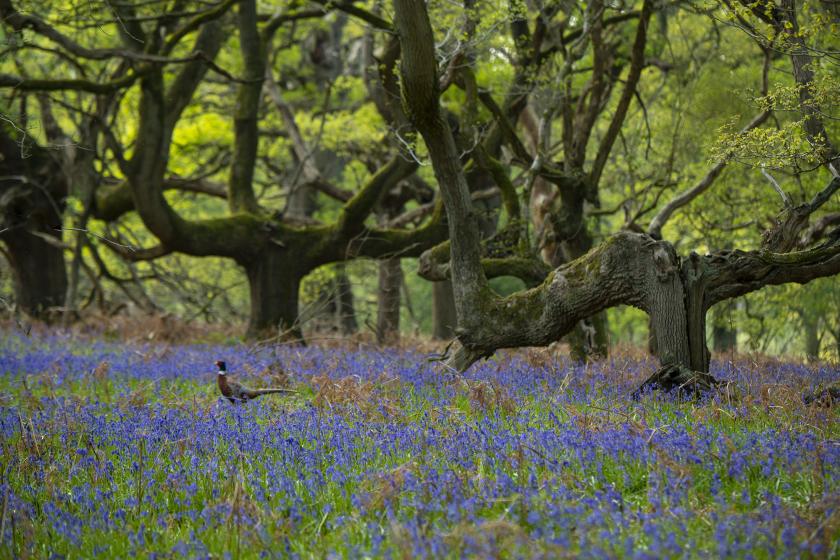
Wildlife Management
Our team carefully manage the wildlife across the Estate to ensure a balance in its biodiversity.As a World Heritage Site and Site of Special Scientific Interest (SSSI), the Estate is truly special, and for decades the team at Blenheim Estate have been passionate about sharing the wonder of this place. The incredible richness of the park’s plant and animal life and its natural beauty are no accident, however; it takes a dedicated team to carefully maintain the balance of life here, protecting what makes Blenheim wonderful, and ensuring future generations can enjoy it as we all do.
Concerns about Wildlife
Please contact us if you have concerns about wildlife on the Estate Contact us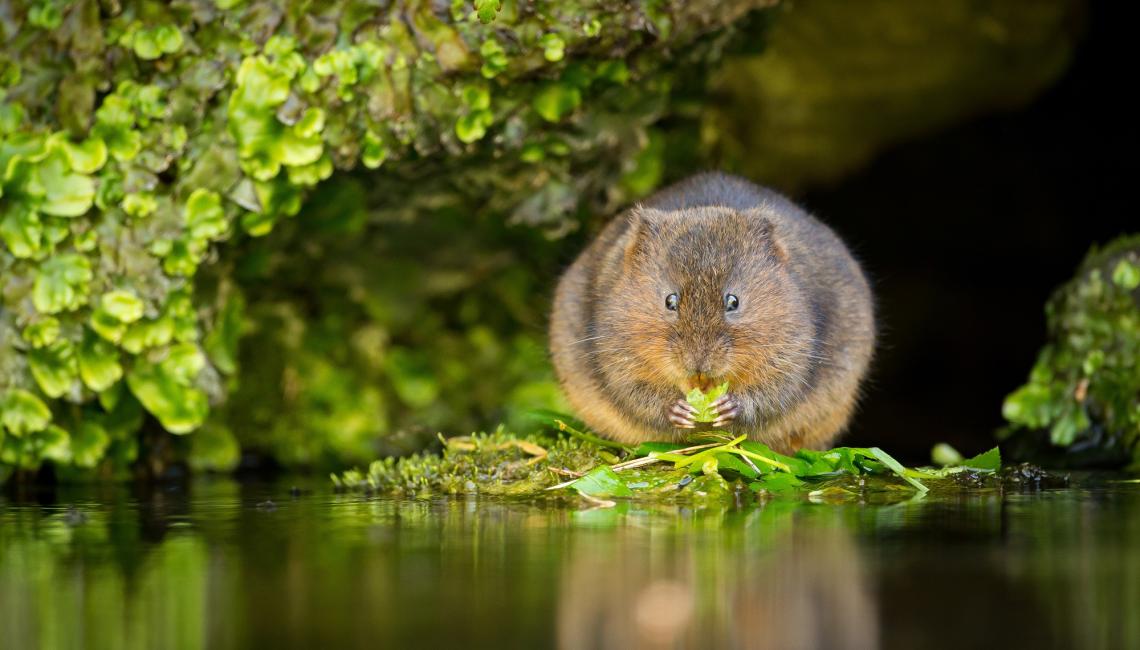
Water Voles
As part of our lake dredge we identified that the water vole habitats at the lake edge would be disturbed by vehicle and equipment movement. Before work commenced we undertook our 'Remo-voles’ program – working closely with ecologists we trapped and translocated the water voles to a safe place for the duration of the dredge works. We followed the good practice set out in the Water Vole Conservation Handbook, which are fully licensed by Natural England.
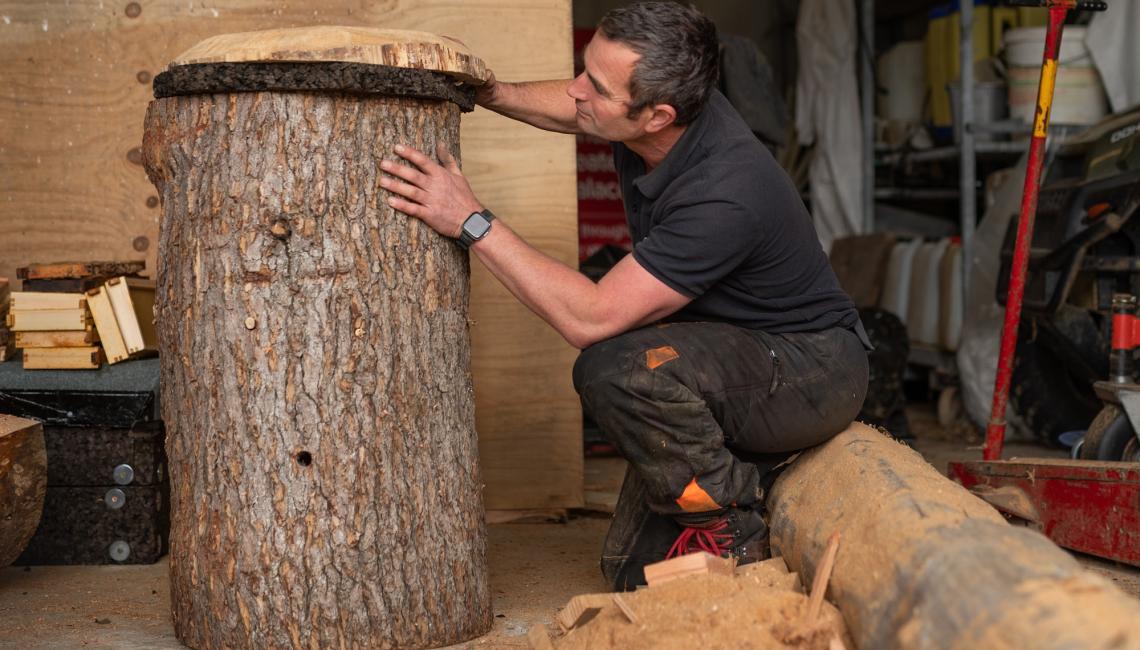
Bees
Since discovering multiple colonies of native honeybees in the park, our team have been protecting the fragile ecosystem this species relies on. Conservation work includes preventing any ‘dangerous’ colonies entering the Estate and causing disruption. To alleviate this risk, a small number of our natural bee hives have been placed around the Park in the hopes that any threatening colonies will swarm the vacant hives, which can then be safely moved elsewhere before they establish within the World Heritage Site.
Learn more about bees at Blenheim
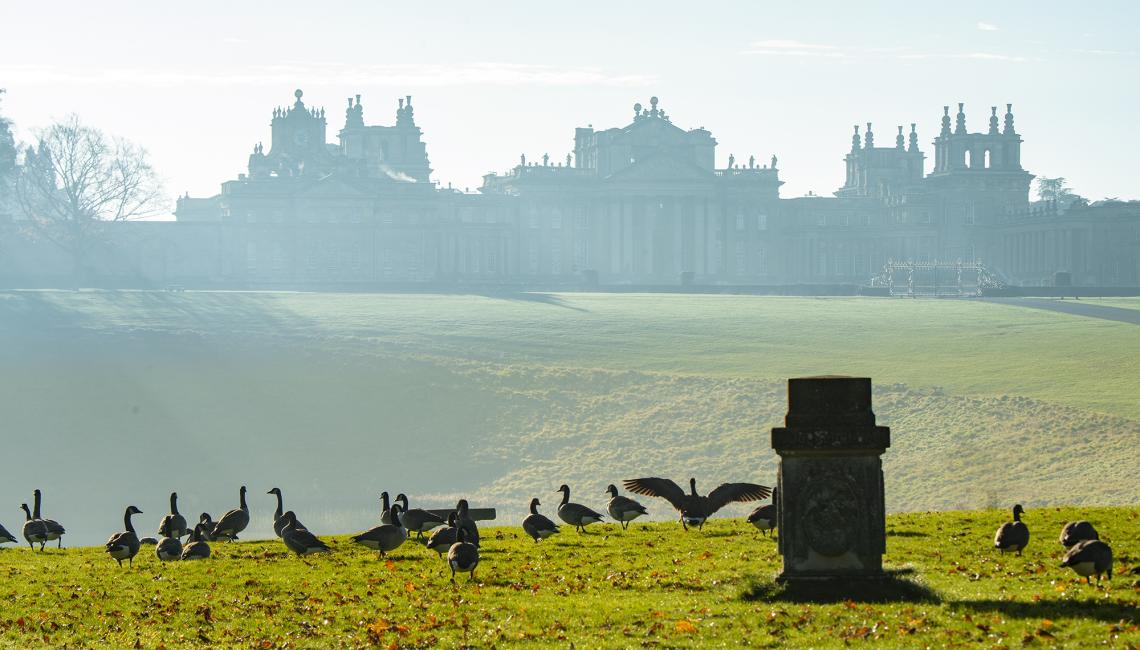
Canada Geese
We have a healthy population of Canada Geese and, in manageable numbers, their grazing forms a vital part of the ecosystem around the lakes. If left uncontrolled they damage large areas of vegetation, crops, fisheries and facilitate disease amongst other wild birds. Their mess is a public health concern both on the ground and in the airspace. Controlling Canada Geese populations is covered by an open licence granted by Natural England.
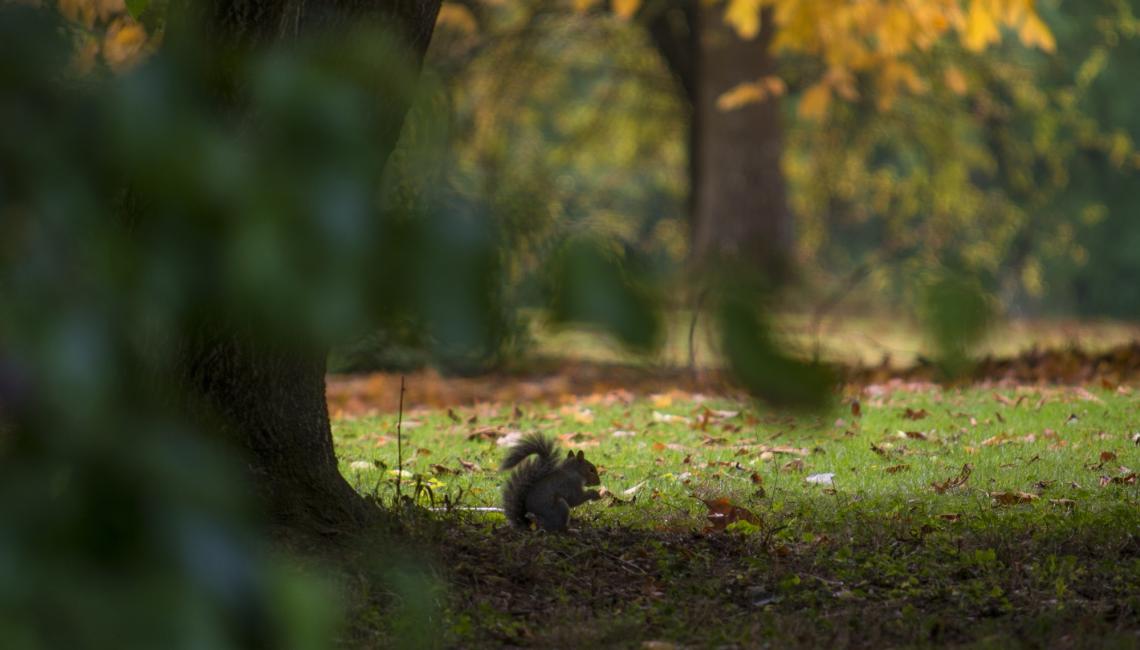
Grey Squirrels
Introduced into the UK in the 1800s, the Grey Squirrel is now very common and widespread across the UK. For many people it provides an easy encounter with wildlife but can be damaging to woodlands and has contributed to the decline of the native red squirrel.
Invasive Grey Squirrels can also cause serious harm to forests because they strip trees of their bark and can cause irreversible damage that can kill the native species in the park, which serve as a habitat to many other species of wildlife. Our team works to minimise the damaging effect squirrels have by managing their population with traps.
